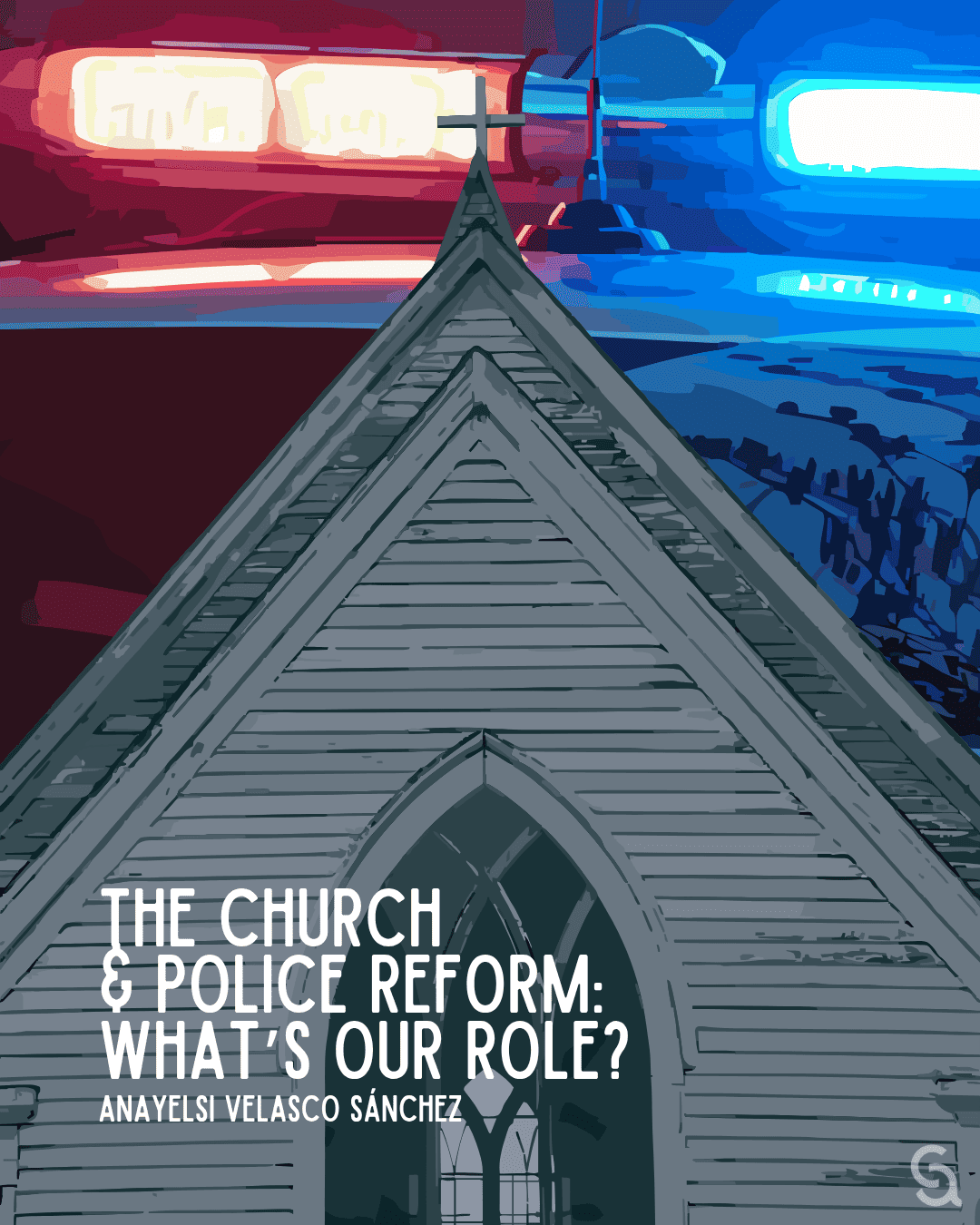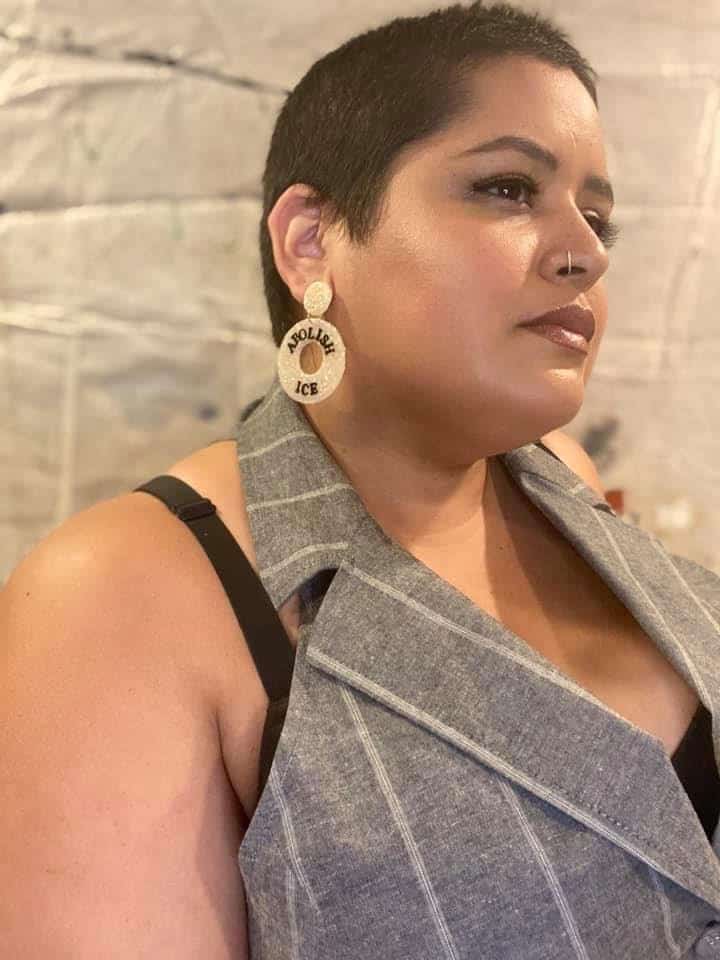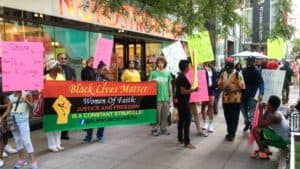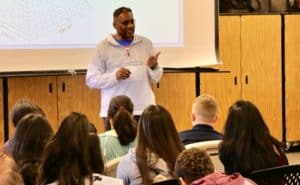 Names to remember: Victims of police violence
Names to remember: Victims of police violence
-
Andy Lopez (13) – Shot and killed in 2013 by a police officer who saw him walking with an airsoft gun.
-
Tamir Rice (12) – Shot and killed in 2014 by a police officer who saw him playing with a toy pellet gun.
-
Zachary Bear Heels (29) – Died in 2017 after Omaha police used a stun gun on him 12 times and punched him in the head.
-
Elijah McClain (23) – Died in 2019 after Aurora police placed him in a chokehold and injected him with ketamine.
-
Breonna Taylor (26) – Shot and killed in 2020 when Louisville police executed a no-knock warrant while she was sleeping.
-
Ramon Timothy Lopez (28) – Died in 2020 after being hogtied by Phoenix police, held face-down on 99° asphalt for 6 minutes, and suffering a broken arm.
Then came George Floyd in May 2020. The world watched as he cried out “I can’t breathe” under the knee of Officer Derek Chauvin. Streets filled with protest, churches filled with prayer, and cries for justice echoed across the country.
But now, five years later, police budgets are rising, reform bills are stalling, and the church is left asking: What happened? And what is our role in this moment?
“It is a kind of Alice in Wonderland—with the same moving picture re-shown over and over again, the same analysis, the same recommendations, and the same inaction.” — Dr. Kenneth B. Clark, 1967
Called to justice: The church and oppressive systems
The church is called to confront and dismantle oppressive systems—not to bless or reinforce them. We are invited into God’s liberating work of justice and restoration. The question isn’t how to make policing better. It’s how to build a world where policing is no longer needed.
“The police reflect and reinforce the dominant ideology of the state that employs them, which explains why they are… resistant to substantive reform.” — #BlackLivesMatter to Black Liberation, Keeanga-Yamahtta Taylor
Even reform, at best, is harm reduction. It does not address the root.
A system designed to harm
Policing in the U.S. didn’t begin as a protective service—it grew out of slave patrols. White men were empowered to hunt and punish enslaved Black people. After emancipation, police enforced Jim Crow laws. Today, this same system continues to disproportionately harm:
-
Black and Brown communities
-
LGBTQ+ individuals
-
People experiencing poverty or mental illness
And tragically, the church has too often been silent—or worse, complicit.
Scripture offers a rebuke. In Ezekiel 34:2–4, God condemns leaders who serve themselves and ignore the flock: “Woe to the shepherds… who only take care of themselves! Should not shepherds take care of the flock?”
As leaders and people of faith, we must ask, “Whom are we protecting—and whom are we ignoring?”
Abolition as a theological calling
Abolition isn’t a radical secular idea. It is a deeply theological stance rooted in Scripture.
Abolition is about dismantling systems of harm and building structures that heal.
Liberation theologians like Gustavo Gutiérrez and James Cone have long pointed to this reality: God’s justice is not abstract—it is material. It is embodied. Jesus takes sides with the poor, the captive, and the criminalized.
“Until we can see the cross and the lynching tree together… there can be no genuine understanding of Christian identity in America.”— James Cone, The Cross and the Lynching Tree
Jesus was not a reformer—he was a disruptor
Jesus didn’t simply reform systems. He disrupted them.
In Luke 4:18–19, he proclaims: “The Spirit of the Lord is upon me… to proclaim liberty to the captives… to set the oppressed free.”
Throughout his ministry:
-
He refused to cast the first stone (John 8).
-
He rejected violence and the sword (Matthew 26:52).
-
He taught radical forgiveness and restoration.
The Jubilee laws of Leviticus 25 offer a clear picture of divine justice: Debts forgiven. Land returned. Dignity restored. That’s not reform. That’s reimagination.
Why reform doesn’t work
After every widely publicized instance of police violence, we see the same cycle:
-
Outrage
-
Calls for reform
-
Return to the status quo
But reform measures like body cameras, implicit bias training, and community policing don’t prevent violence:
-
Body cams record harm but don’t stop it.
-
Community policing can increase surveillance.
-
Bias training often changes nothing.
These tactics create an illusion of change—a veneer of accountability—while the system continues unchanged.
“The system isn’t broken. It’s functioning as it was designed to.”
Jesus once said, “No one puts new wine into old wineskins” (Matt. 9:17). You cannot pour justice into a vessel built on oppression.
What should the church do?
1. Confess and repent.
We must name our complicity. Our silence. Our comfort. Our privilege. Lament and repentance are the first steps toward justice.
2. Educate.
Most churches have not been exposed to abolition as a Christian framework. It should be central to discipleship—reshaping how we think about safety, justice, and harm.
3. Invest in alternatives.
Churches can:
-
redirect funds from police partnerships to community-based safety programs;
-
support mental health care and bail funds;
-
provide sanctuary for undocumented individuals; and
-
partner with local abolitionist organizers.
What does real safety look like?
Through an abolitionist lens, safety means asking: “What would make police, prisons, and punishment unnecessary?”
It looks like:
-
community-controlled housing;
-
mutual aid networks;
-
youth programs and public spaces;
-
trained crisis response teams; and
-
violence interrupters and mediators
This is not utopian. It’s faithful.
Abolition is a gospel issue
The question is not whether the church should respond to policing—it’s how.
Reform may soothe our consciences. Abolition reflects our convictions.
If we believe in a Savior who was arrested, tortured, and executed by the state, then we must believe in a Gospel that confronts the state today.
 Born in Venezuela and U.S.-raised, AnaYelsi Velasco Sánchez is a visual artist, justice and liberation consultant, and community organizer who specializes in interlocking justice to create sustainable social change. Through her business, AVS Consulting, AnaYelsi works closely with organizations and businesses to design impactful strategies that foster healing and liberation.
Born in Venezuela and U.S.-raised, AnaYelsi Velasco Sánchez is a visual artist, justice and liberation consultant, and community organizer who specializes in interlocking justice to create sustainable social change. Through her business, AVS Consulting, AnaYelsi works closely with organizations and businesses to design impactful strategies that foster healing and liberation.
She empowers individuals and communities with her diverse skill set, offering tailored anti-oppressive strategic plans, skills-building workshops, and advising on initiatives that connect art, culture, healing, and social justice. Whether supporting nonprofits, cultural institutions, or advocacy groups, Anayelsi empowers her partners to advance justice while ensuring that marginalized voices are at the center of every conversation. AnaYelsi also serves as the Board Chair of the Festival Center in Washington, DC.


